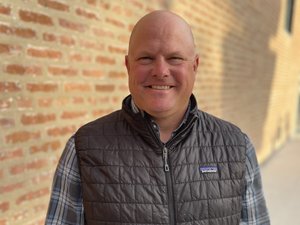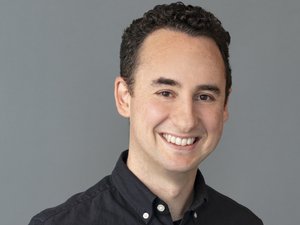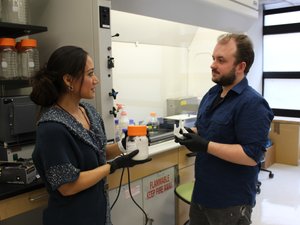
CancerIQ, a Chicago cancer-fighting startup with roots at the University of Chicago, is gaining traction among healthcare systems that are increasingly looking for innovative tools to help them treat cancer patients.
The startup, founded by Feyi Olopade, makes a software for healthcare providers that allows them to identify patients who have a genetic predisposition to certain cancers. Physicians can use CancerIQ to either catch a patient’s cancer early or prevent it altogether, Olopade said.
CancerIQ originally got its start when it competed in UChicago’s New Venture Challenge in 2013, but it didn’t fully commercialize until 2015.
Now, the startup has nearly 30 clients, both private practices and larger healthcare systems, such as Advocate Health Care, OSF HealthCare and Adventist Health System.
“Those are the early adopters that now have two years of really eye-opening data,” Olopade said. “Now, we’re scaling dramatically in the Chicago area.”
CancerIQ has helped screen more than 115,000 patients and is currently raising venture capital to help it expand even more, Olopade said. The startup currently has $5 million in VC funding from investors like Michael Polsky, KGC Capital and Eric Lefkofsky’s Lightbank. Lefkofsky also has his own cancer-fighting startup in Chicago called Tempus, which over the summer raised $110 million at a $2 billion valuation for its genomic sequencing technology.
To accommodate all its growth, CancerIQ is adding 20 more employees to its 14-person staff across its engineering, product and customer service departments.
The startup, which Olopade developed while working at UChicago’s Center for Clinical Cancer Genetics, uses data to create its personalized cancer care service. Through the platform, which includes a patient survey, providers can screen, assess and manage entire patient populations based on individual genetic risks.
Many genetic counselors have to spend time interviewing patients on family history, but CancerIQ’s survey allows providers to save time since patients take it before they arrive at the physician’s office.
“It’s really something that drives value for everyone in the healthcare ecosystem,” Olopade said. “From the providers’ perspective, we help them stay current with the latest innovations in genetic and genomic testing, and also make sure their patients are getting the right care at the right time.
“We’re streamlining the patient’s experience with cancer-risk assessments and genetic counseling so they don’t need to wait for months on a waiting list to be seen,” she continued. “It’s a win-win in today’s healthcare environment.”
Rikki Gaber, the program coordinator of cancer risk evaluation at Advocate Illinois Mesonic Medical Center, has used CancerIQ for nearly two years. In her role, she treats patients that have a current diagnosis or history of cancer, and counsels them on whether they would benefit from a genetic test.
Because of CancerIQ’s patient family history survey, Gaber says she oftentimes has much of the information she needs even before their appointment.
“It’s been really incredible in terms of how it allows me to see patients,” Gaber said. “This allows me to see the number of patients that even two counselors at another institution would see because it allows me to be efficient with my time.”








